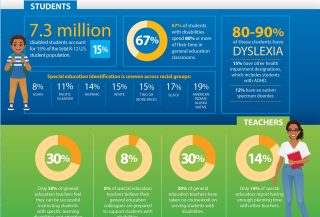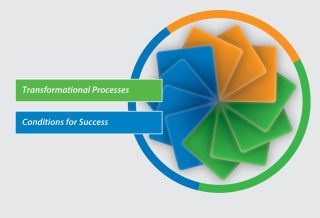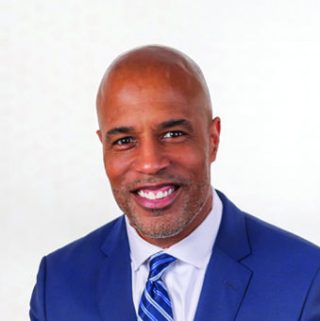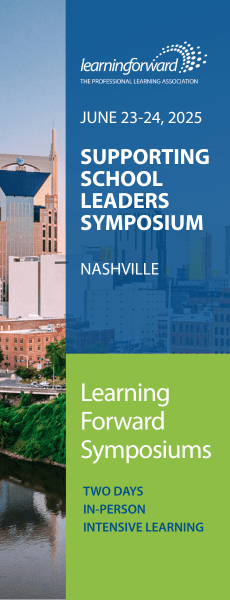POLICY PERSPECTIVE
Make the connection for policymakers
By Melinda George
Categories: Advocacy/policy, Standards for Professional LearningJune 2022
When the revised Standards for Professional Learning were released this spring, I had an inspiring conversation with a lead appropriations staff person from the U.S. House of Representatives. We were discussing the graphic that depicts the standards and shows how all the standards work together to improve systems to support professional learning.
Just like that, a light bulb went on for him. He said, “So, if a state or school district adopts the standards at the system level, then we can know that policies and investments in that system will be strong because the professional learning being offered aligns to the standards.” My face lit up. “Yes! Exactly!” I told him.
My colleague’s aha moment shows why it is crucial for learning professionals to be intentional about explaining connections between the new evidence-based standards and proposed and enacted policies at the federal, state, provincial, and district levels. The standards can help us build the confidence of policymakers that the policies they are creating and the investments they are recommending will be used wisely and in a manner that will positively affect teaching and learning.
Making that case is the job of everyone who values professional learning. Here are three steps you can take in your interactions with decision-makers, including leaders in your system and lawmakers at the state and national levels.
Help policymakers understand the standards
Many policymakers understand that professional learning is necessary, but they may not recognize that educators at all levels need professional learning specific to their roles and responsibilities. Furthermore, they may not be familiar with the fact that high-quality professional learning is ongoing, job-embedded, and collaborative. In fact, this is quite different than what most policymakers envision when they hear the term professional learning. Explaining the standards offers educators an opportunity to establish a common language with policymakers so that they understand the kind of professional learning we are asking them to support.
A great starting place when talking with policymakers is to help them understand the role of standards in building an educational system in which high-quality professional learning results in the improvements educators seek for themselves and their students. Explain that when states, school systems, and other jurisdictions adopt Standards for Professional Learning in policy and tie adoption to the actions that impact practice — for example, integrating standards into educator performance processes or requiring standards alignment in district planning — practice changes as a result.
Point out that there are 11 standards that outline a system for professional learning. Explain that these standards fall into three categories (Rigorous Content for Each Learner, Transformational Processes, and Conditions for Success), but they must all be present for the system to lead to student success. To help provide an overview, share a copy of the Quick-Start Guide, which can be found on our website (standards.learningforward.org/wp-content/uploads/sites/29/2022/04/quickguide.pdf).
Show what high-quality, standards-driven professional learning looks like
When working with policymakers, it is important to be explicit about how to invest in a systemic approach to professional learning based on the standards. Describe an investment that was made in your school or district that supported ongoing, job-embedded professional learning. Paint the picture: What was the problem that you needed to solve? What was the duration of the professional learning? How many educators and students benefited? Does your school or district have the resources and support to continue this as an ongoing practice? Make sure that the policymaker knows who designed, facilitated, and engaged in the professional learning. Draw the connections between the standards and the impact of the learning experience.
Emphasize how standards-driven professional learning is making a difference
Policymakers need to know that their efforts to remove barriers to professional learning and the funding that they provide to support professional learning are improving teaching and learning. To make that case, bring evidence and data.
We have a strong research base to share about the newly revised standards, which you can read and download at our website (standards.learningforward.org/wp-content/uploads/sites/29/2022/04/standards-research.pdf). As part of that research base, the American Institutes for Research recently conducted a meta-analysis (a sophisticated strategy for combining findings from multiple studies) that found that professional learning aligned to Standards for Professional Learning leads to improved teacher and student outcomes (Garrett et al., 2021). (Read more about the findings in this issue’s Research section.) These findings are exactly the kind of evidence many policymakers have been asking for, so we strongly encourage you to use it as a conversation starter.
Just as important as national data are your local experiences and results. When you meet with a policymaker, share your stories about effective professional learning in your system. Whenever possible, bring data that shows how the professional learning had an impact. Being able to complete a sentence that begins with “And as a result …” means that you are confirming for policymakers that their investments were strong and having an impact in education. See the library of data summaries on our website for an example of how other educators have made their case: learningforward.org/title-iia-data-summaries/
Your voice matters, and there are no better advocates for professional learning than those who have benefited from it and improved student learning as a result. We encourage you to use the new standards to make your case even stronger.
For more information on making the connection between standards and policy, visit: standards.learningforward.org/standards-in-policy/
Download pdf here.
References
Garrett, R., Zhang, Q., Citkowicz, M., & Burr, L. (2021). How Learning Forward’s Standards for Professional Learning are associated with teacher instruction and student achievement: A meta-analysis. Center on Great Teachers and Leaders at the American Institutes for Research. gtlcenter. org/sites/default/files/LF-2022-Standards-for-PL-Meta%20 Analysis%20Report_Final.pdf.

Melinda George is Learning Forward’s chief policy officer, serving on the Learning Forward leadership team and overseeing Learning Forward’s policy and advocacy work. Melinda has been integral to developing strategy and facilitating networks as well as leading the Learning Forward fundraising team.
Categories: Advocacy/policy, Standards for Professional Learning
Recent Issues
LEARNING DESIGNS
February 2025
How we learn influences what we learn. This issue shares essential...
BUILDING BRIDGES
December 2024
Students benefit when educators bridge the continuum of professional...
CURRICULUM-BASED PROFESSIONAL LEARNING
October 2024
High-quality curriculum requires skilled educators to put it into...
LEARNING TO PIVOT
August 2024
Sometimes new information and situations call for major change. This issue...












